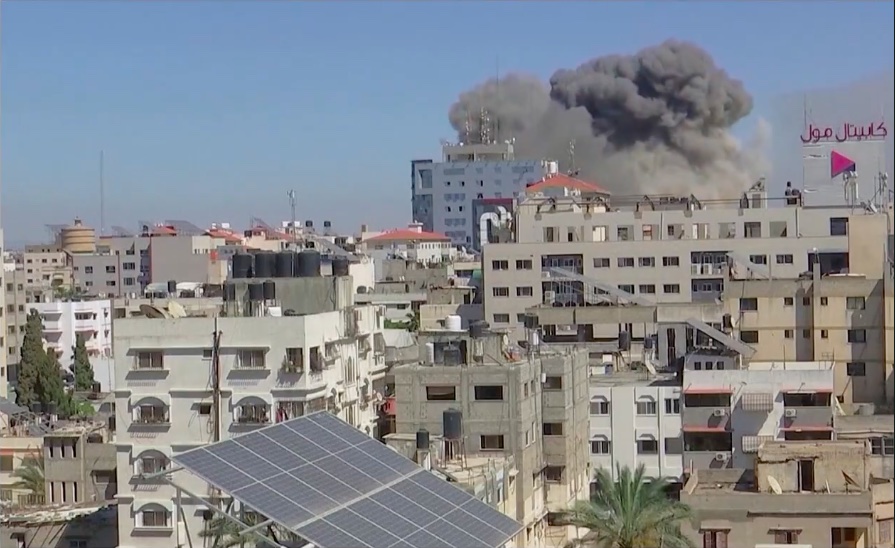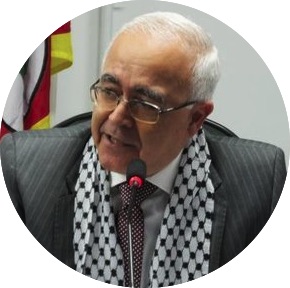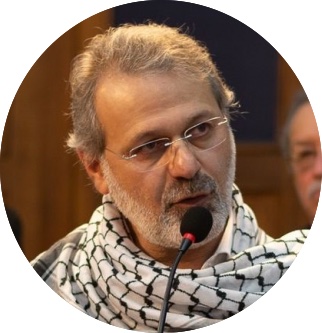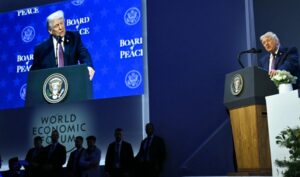
Published 05/06/2024 17:11 | Edited 05/06/2024 17:50
Israel’s cabinet voted unanimously to close Al Jazeera in the country on Sunday, immediately ordering the closure of its offices and a ban on the company’s broadcasts.
The decision was announced by Israeli Prime Minister Benjamin Netanyahu on X. Hours later, Israeli Communications Minister Shlomo Karhi published images on Aljazira in East Jerusalem and confiscating the canal’s equipment.
The closure of the Aljazira by the Israeli government has generated waves of criticism and concern, not only within the Middle East, but around the world. Representatives of Latin American organizations consulted by the Red Portal expressed their opinions on the matter, highlighting the implications for press freedom and information control.
“The only democracy in the Middle East”

Emir Mourad, Secretary General of the Latin American and Caribbean Palestinian Confederation (Coplac), lamented Israel’s decision, emphasizing that a true democracy does not practice genocide or restrict freedom of expression. “Israel, which claims to be the only democracy in the Middle East… we know that a democracy does not practice genocide, as it has done against the Palestinian people,” she said. He highlighted the importance of a free press in reporting human rights violations and expressed concern about the closure of the Aljazira.
“A democracy does not kill journalists, it does not close press organizations, therefore it must be condemned at the highest level of national and international authorities, both here in Brazil and around the world”, repudiated Mourad. For him, this is the new phase of the genocide: closing the press, after killing 140 journalists who reported the genocide to the rest of the world.
Qatar’s interest in Gaza

Ualid Rabah, president of the Palestine Arab Federation of Brazil (Fepal), highlighted the role of Aljazira in disseminating information about the conflict in Palestine and Gaza, highlighting that the closure of the channel represents an attempt to control the genocide narrative. He raised questions about the political interests behind the decision, pointing to possible geopolitical and economic motivations.
Rabah also mentioned the relationship between Aljazira and some Arab countries allied with the United States, suggesting that closing the canal could serve the interests of these regimes. He warned of the danger of growing totalitarianism, which seeks to control information and silence dissenting voices.
“A totalitarian world is being built in which information will also need to be controlled,” said Rabah, highlighting the concern about the growing trend of controlling information on a global level. He pointed out that Aljazira, despite being part of the “Western” media system, does not always follow interests aligned with the status quo, especially in relation to the Palestinian issue and the conflict in Gaza.
“This was the case, for example, in the case of Syria and Libya, where the Aljazira was responsible for real fake news. But in the center of the empire, everything is not always in complete agreement,” he highlighted. For him, Qatar itself, which finances the Aljazira, has interests in even separating Gaza from the whole of Palestine and taking advantage of the riches and strategic point that that territory is. “In other words, exploring Gaza, possibly associated with the United States or the West, and having a port there, and eventually even a military base associated with the West”, he reveals.
Rabah highlighted that Aljazira played a crucial role in disseminating information to the world about events in the Middle East, going beyond social media. He emphasized that closing the channel prevents images and reports from reaching Western audiences and a certain Arab audience allied with the United States.
Furthermore, Rabah suggested that countries such as Jordan and the Gulf petromonarchies may be uncomfortable with the effects of the genocide in the region, but do not have the political, moral and diplomatic conditions to censor the Aljazira. In this context, Israel is committed to “fulfilling the dirty role” of controlling information, which no other Western or even Arab country or regime, allied with the West, would like to promote. In doing so, it serves the interests of the United States and other Western countries, which are experiencing turmoil in public opinion, such as protests at major universities in the US and Europe.
“The Western pattern of totalitarianism, which will increasingly require genocides, will require even more information control. The West may have believed that it had already sufficiently prepared the hard core of its demographics within its countries to withstand the genocide and even defend it. Apparently, they were wrong in their assessment of the bearability of the televised genocide.”
Rabah’s statements reflect concern about the implications of the Aljazira’s closure for press freedom and transparency in coverage of events in the Middle East, as well as for public understanding of the genocide in Gaza.
Reactions to the ban
Aljazira has been targeted by Israel before: Netanyahu threatened to close its Jerusalem office in 2017, and an Israeli missile destroyed the building housing the broadcaster’s Gaza office in 2021. Many Aljazira journalists — and in several cases, their families — have been killed in Israeli shooting or shelling, including during the current war in Gaza.
On Sunday, Aljazira issued a statement strongly condemning Israel’s closure of its operations, describing it as a “criminal act” that violates international and humanitarian law. The news network warned that the suppression of the free press is an affront to democratic principles and an attempt to control the narrative of the conflict in the region.
Aljazira’s statement also reiterated the network’s commitment to continue providing news to a global audience despite the challenges posed by the closure of its Jerusalem offices in both the western and occupied eastern parts of the city.
The closure of offices resulted in the confiscation of essential equipment for journalistic production, including editing equipment, cameras, microphones and servers. Furthermore, Israel has banned any devices used for news gathering, which directly affects the work of Aljazira correspondents in the region.
The blockade of foreign journalists from entering Gaza since the start of the war in October has hampered independent coverage of the conflict. Aljazira has been one of the few international sources to bring information about Israeli attacks on Palestinians to a global audience.
The international community has reacted to the closure of Aljazira with outrage and concern. Human rights and press freedom organizations, along with political leaders and parliamentarians, have condemned the measure as an attempt to silence the truth and restrict access to information.
As the Aljazira evaluates its legal options and seeks to protect the rights of its journalists, the discussion about press freedom and human rights continues to gain prominence amid the ongoing conflict in the region.
Source: vermelho.org.br

